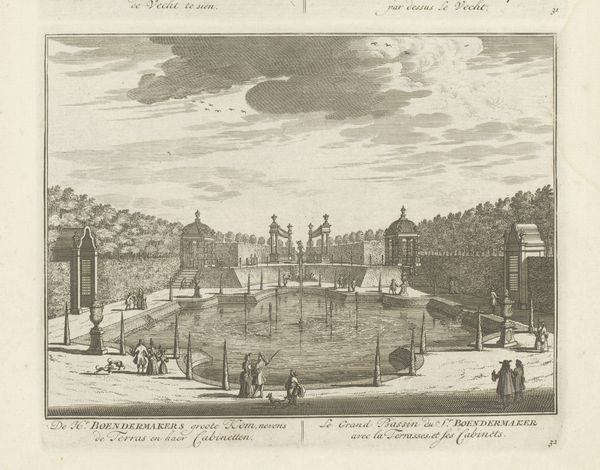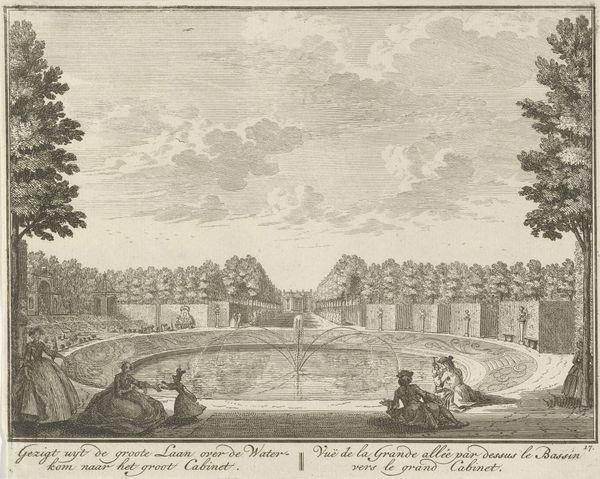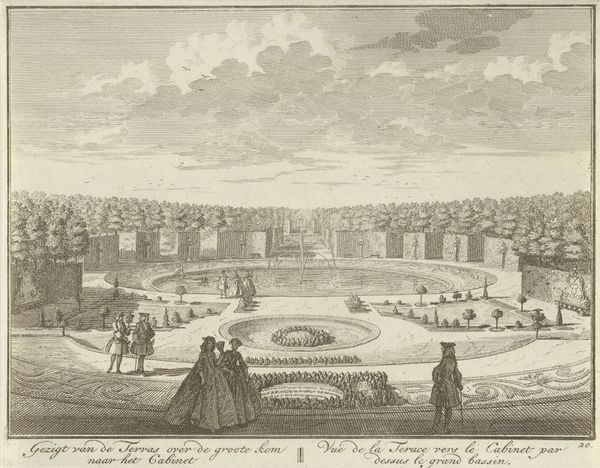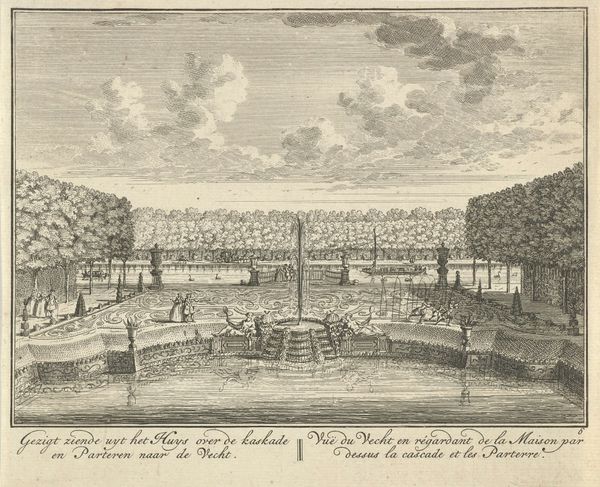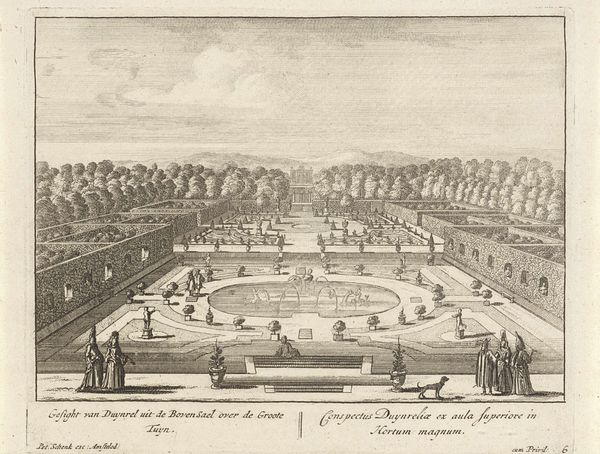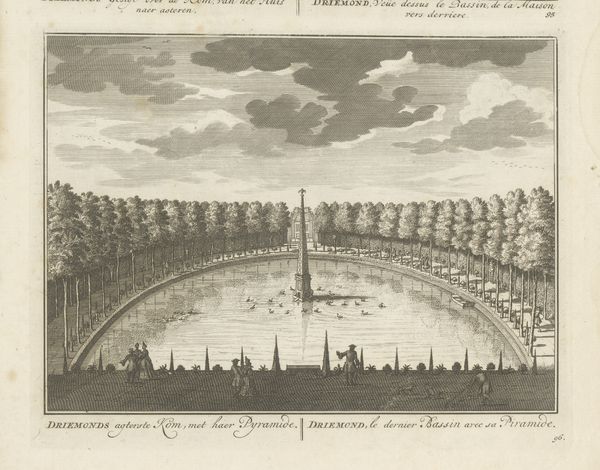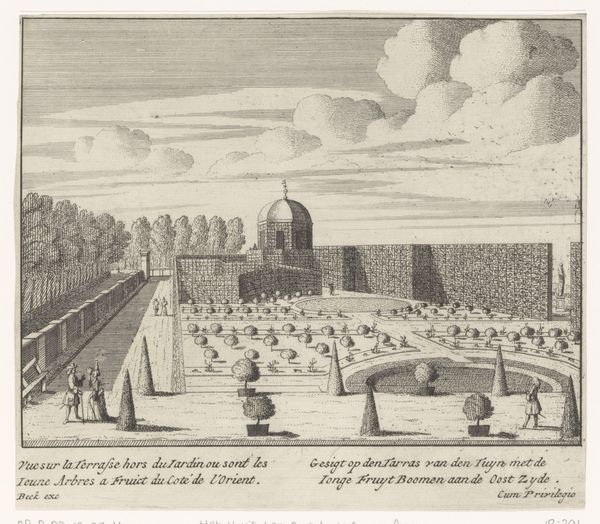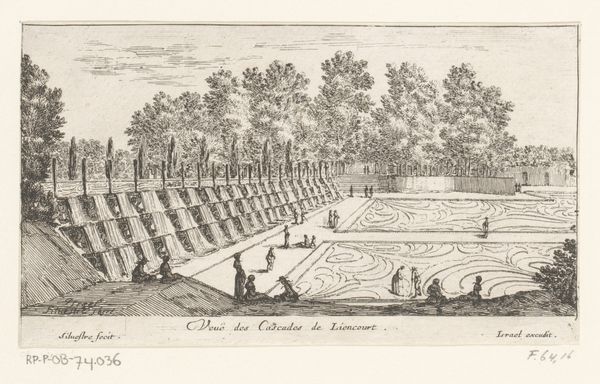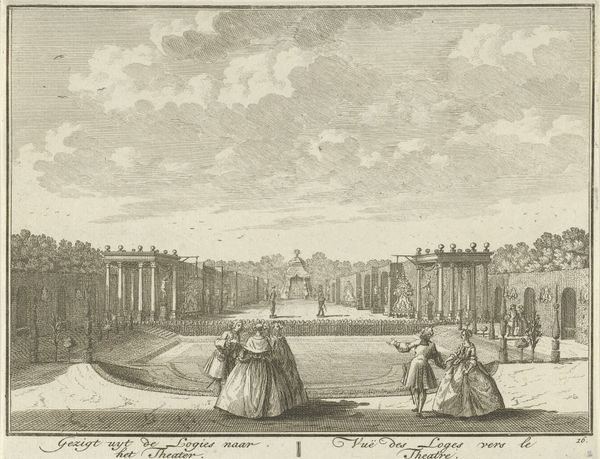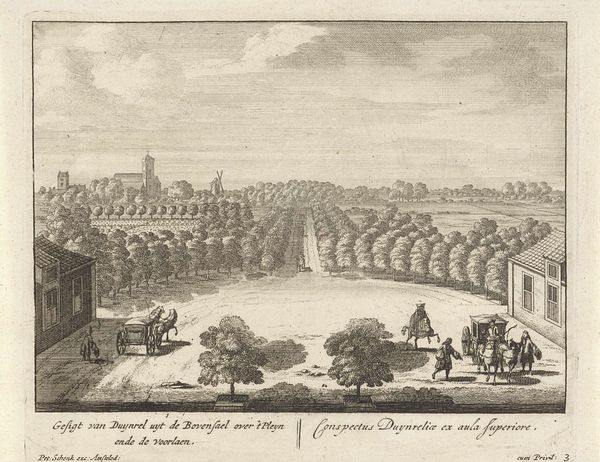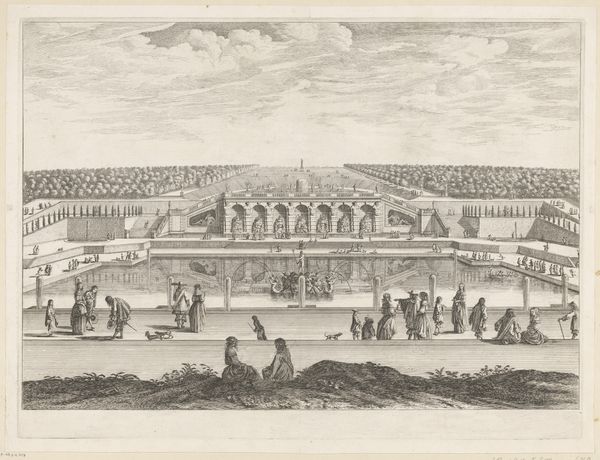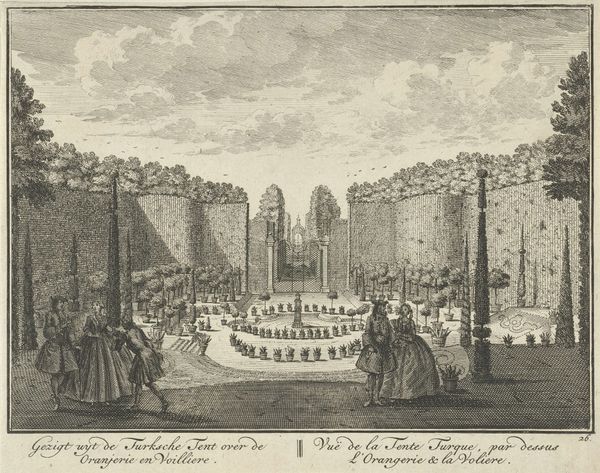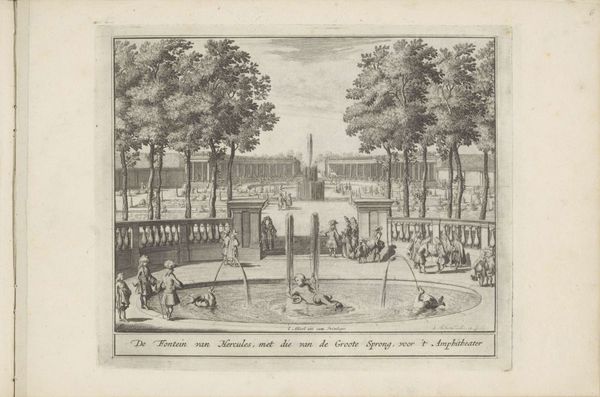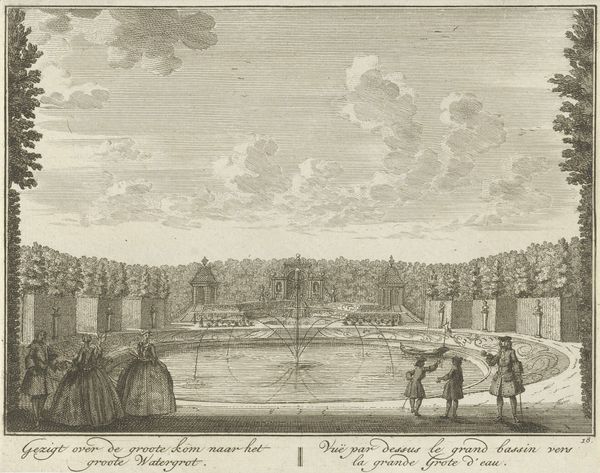
Vijver en obelisk in de tuin van Kasteel Gunterstein, Breukelen 1680 - 1696
0:00
0:00
josephmulder
Rijksmuseum
print, engraving
#
dutch-golden-age
# print
#
old engraving style
#
landscape
#
perspective
#
geometric
#
cityscape
#
engraving
Dimensions: height 131 mm, width 160 mm
Copyright: Rijks Museum: Open Domain
This engraving by Joseph Mulder depicts a pond and obelisk in the garden of Castle Gunterstein. Dominating the scene is the obelisk, an ancient Egyptian symbol adopted by the Romans and later integrated into European gardens as a sign of power, memory, and continuity. Notice how the obelisk, with its roots in phallic symbolism and sun worship, re-emerges here, transformed yet still potent. The presence of water, reflecting the obelisk, enhances its symbolic weight, hinting at the depths of collective memory. Water serves as a mirror, reflecting not just the physical world but also the layered meanings we project onto these enduring forms. The obelisk's verticality, piercing the sky, evokes a longing for transcendence, a reaching beyond the earthly realm. This visual echo of ancient aspirations engages us, tapping into a deep, subconscious recognition of humanity's persistent quest for meaning. The image resonates because it evokes a primal connection to symbols that have shaped our cultural psyche for millennia, highlighting the cyclical nature of symbols as they resurface, evolve, and acquire new significance.
Comments
No comments
Be the first to comment and join the conversation on the ultimate creative platform.
